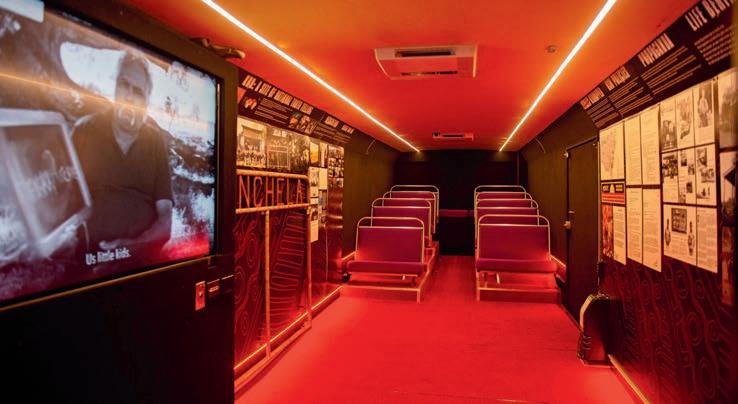
5 minute read
operator | kbhac mobile education centre bus
TELLING THEIR STORIES
Bus operator CDC NSW has committed to a partnership in support of Australia’s Indigenous people’s ‘Stolen Generations truth telling’, with a new mobile education centre.
WORDS FABIAN COTTER IMAGES CDC NSW
In cementing its partnership with Kinchela Boys Home Aboriginal Corporation (KBHAC) during its first KBHAC Mobile Education
Centre (MEC) community visit post Covid-19, CDC NSW driver
Mikhail Mikhail steered the
MEC bus to a Healing Session at
Aboriginal Health and Medical
Research Council (AH&MRC) in
Little Bay, where it was unveiled to a group of people who had experienced abuse at the
Kinchela Aboriginal Boys Training
Home (KBH), which closed in 1970, as well as AH&MRC staff.
The MEC – a converted commuter bus nicknamed
‘Benny’ featuring an audio-visual system and printed historical information on Stolen
Generations – is the first of its kind and integral to helping KBHAC members tell their stories in a range of locations, CDC NSW says.
The MEC will be used as a tool of education for schools,
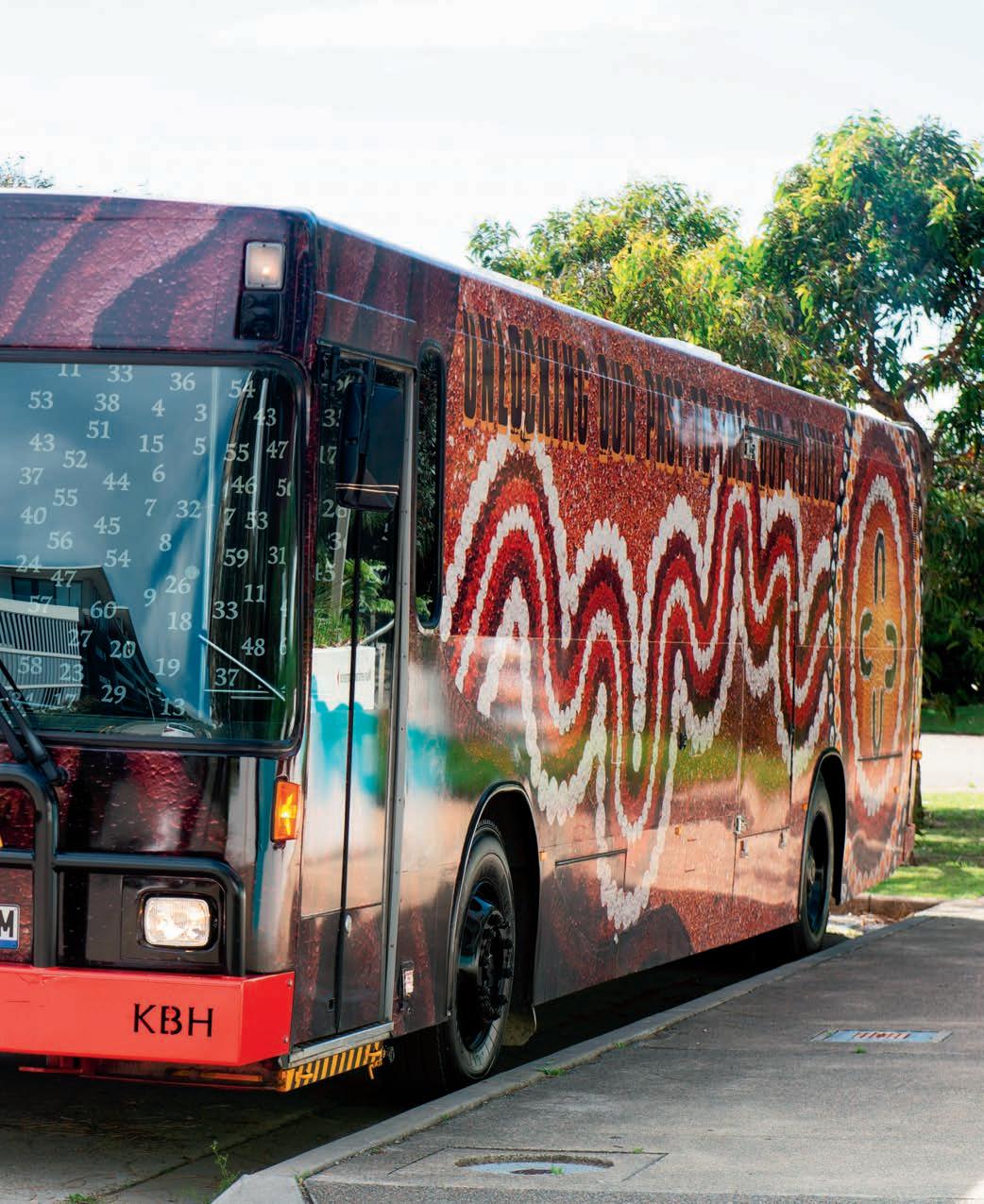
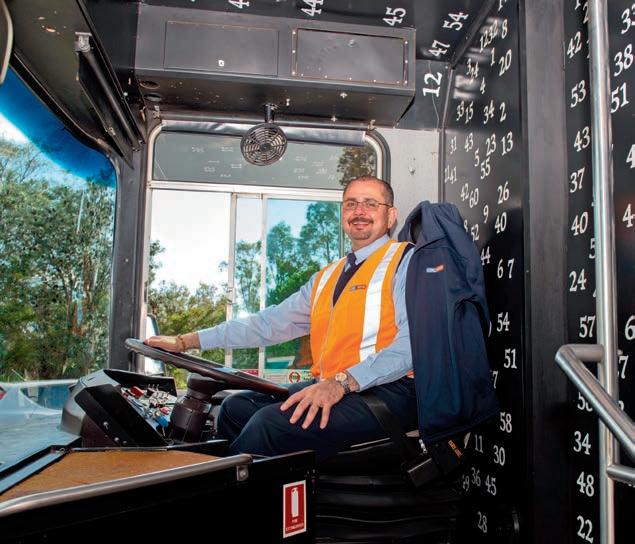
development, Ravinder Singh, says the partnership was a great way for CDC NSW to use its resources to back a very important cause while helping achieve the company’s reconciliation goals.
“We are very proud and excited about getting involved with Kinchela Boys Home survivors and collaborating with them in getting Benny in tip-top condition, so they can get out there and continue with the healing and reconciliation process,” Singh said.
A GODSEND
KBHAC CEO Dr Tiffany McComsey thanked CDC NSW for kindly agreeing to sponsor the MEC.
“We are very grateful to CDC NSW for agreeing to look after our MEC and ensuring that the bus is roadworthy, but also providing us with bus drivers to help be part of this journey and who can help transport this bus where it needs to go
community groups and those who work with Aboriginal people and the Aboriginal community, it explains.
The partnership is an important part of CDC NSW’s contributions to causes that assist with reconciliation for Aboriginal and Torres Strait Islander peoples, it adds.
DRIVER SUPPORT
CDC NSW has committed to maintaining and storing the MEC between outings and will also provide KBHAC with drivers to take the bus to different communities across New South Wales, the company confirms.
In turn, KBHAC is assisting CDC NSW by helping it employ more Aboriginal and Torres Strait Islander apprentices and staff and provide guidance on maintaining a culturally safe and supportive working environment for them, it explains.
KBHAC will also be conducting ongoing cultural awareness training with CDC NSW’s staff, it adds.
CDC NSW general manager for innovation and organisational
The MEC will be used as a tool of education for schools, community groups and those who work with Aboriginal people and the Aboriginal community.
Above:
CDC NSW bus driver Mikhail Mikhail steered the MEC to a Healing Session at Aboriginal Health and Medical Research Council in Little Bay.
Right:
The Kinchela Boys Home Aboriginal Corporation (KBHAC) was established by survivors of KBH to provide tailored services to those who were abused at the home and their families.
Opposite, Above and Below:
The MEC includes oral testimony, archival material, animated film, visual images and timelines to engage and educate visitors; The MEC will be used as a valuable education tool.
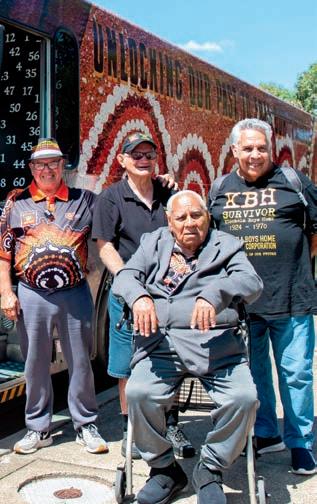
is a godsend,” McComsey said.
“We’re hoping it enriches CDC NSW as an organisation and also that the experiences are ones that can be shared with the CDC families of the employees who work there.
“The stories from KBH are important stories to tell. This bus is very much like a sacred space. When you go inside the bus, you realise you are inside the KBH story,” she said.
“As a small organisation we are so grateful to CDC NSW for providing the oversight and maintenance – we know it is in good hands.”
CDC NSW has committed to maintaining and storing the MEC between outings and will also provide KBHAC with drivers to take the bus to different communities across New South Wales, the company confirms.
ABOUT KBHAC
KBHAC was established by survivors of Kinchela Aboriginal Boys Training Home, a ‘home’ run by the NSW government for more than 50 years to house Aboriginal boys forcibly removed from their families.
KBHAC says that it is committed
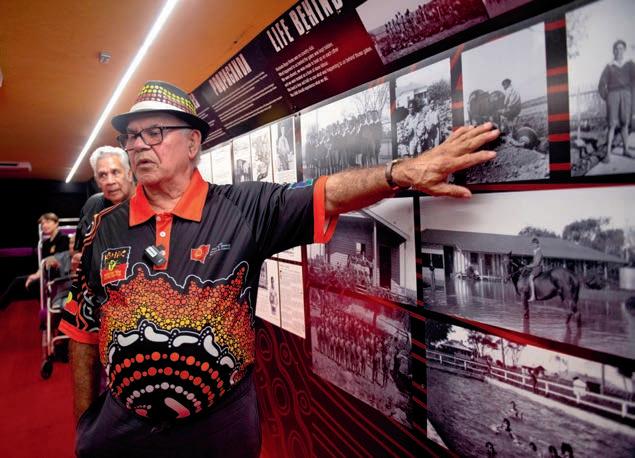
MOBILE EDUCATION CENTRE
The MEC includes an interior exhibition display developed in consultation with survivors from Kinchela Boys Home, known as the uncles. The back half of the bus has been converted into a cinema that shows a short, animated film collaboratively produced with the uncles.
This is a whole of community experiential learning centre, says KBHAC, which aims to educate children, young people and communities (Aboriginal and non-Indigenous) through three levels of engagement and drawing on a range of resources: oral testimony, archival material, animated film, visual images and timelines as well as interactive materials, including an online portal.
For more information, visit: https://kinchelaboyshome.org.au
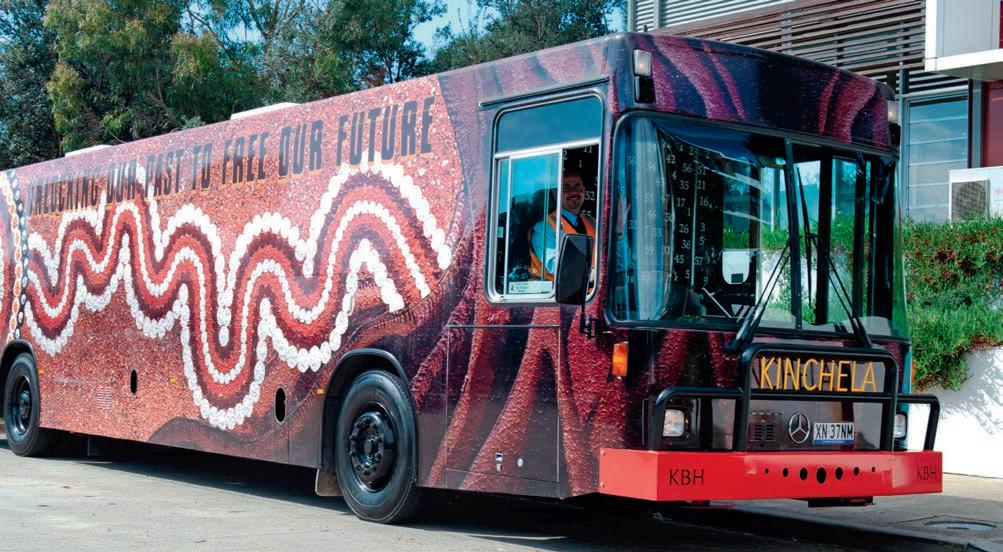
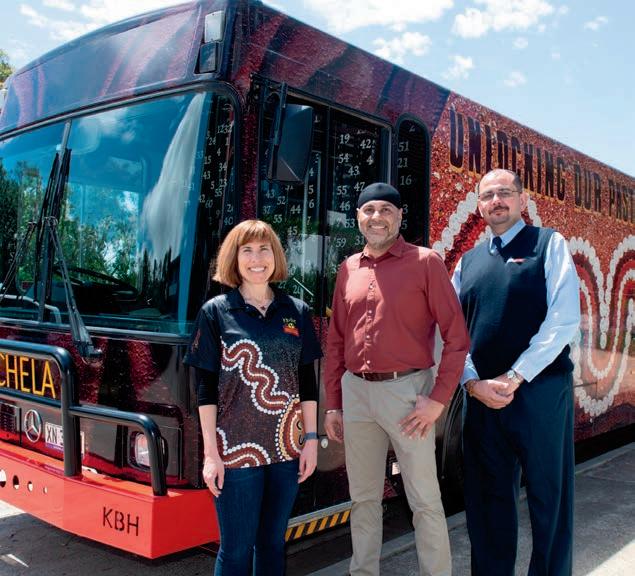
to empowering positive, healthy peer support models that enable greater inclusion in community life.
It provides tailored services to KBH survivors and their families, referral support for other Stolen Generations survivors and their families and also support for the broader community through its Ability Links NSW service and NDIS registered services.
KIN CONNECT
The Kin Connect Program supports KBH survivors, their descendants and families, KBHAC states.
Using empowering survivor-led models with a deep understanding of the issues KBH survivors and their descendants experience, KBHAC has developed a holistic model of care to support KBH survivors, their descendants and families which underpins the services provided in the Kin Connect Program, it explains.
This program encourages and supports sustainable healing programs that addresses the legacy of physical, sexual, psychological and cultural abuse experienced by the KBH survivors, as well as the inter-generational trauma experienced by their descendants, it explains.
ABOUT CDC NSW
CDC NSW is a subsidiary of ComfortDelGro Corporation Australia (CDC).
In NSW, CDC NSW operates Hillsbus and Forest Coach Lines in Sydney, as well as other regional cities outside of Sydney including Blue Mountains Transit, Hunter Valley Buses, Blanch’s Bus Company on the north coast and CDC Broken Hill, it states.
Above:
KBHAC CEO Dr Tiffany McComsey (pictured here, left, with CDC NSW’s Ravinder Singh, centre, and driver Mikhail Mikhail) said that she hopes the experiences provided by the MEC will help enrich CDC and its employees.
Right:
The MEC includes an interior exhibition display and short film developed in consultation with survivors from Kinchela Boys Home.
